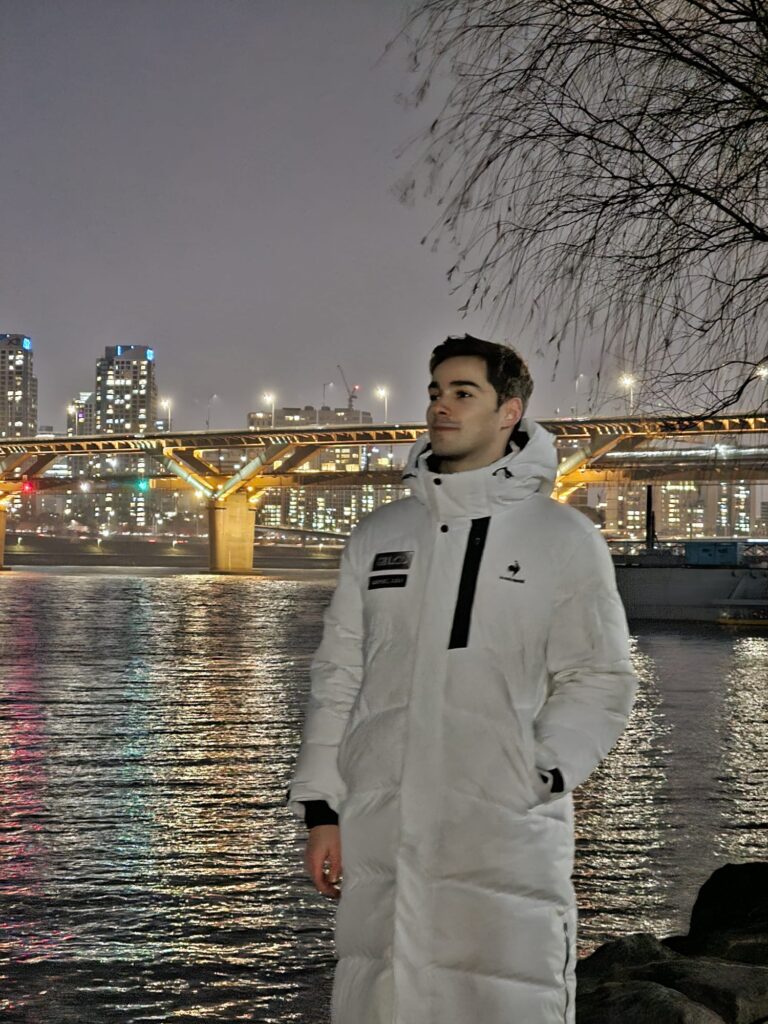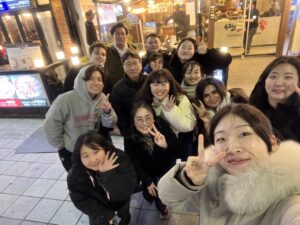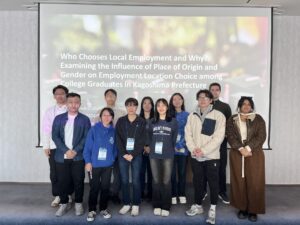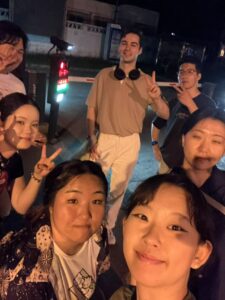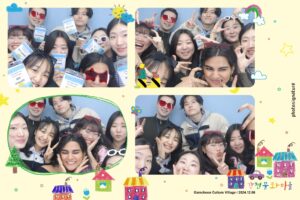Reflecting on Campus Asia
Asia at the heart of my journey
Asia has been at the center of my academic and personal journey from the very beginning. Initially drawn to Japan and Japanese culture, I joined Sciences Po’s Asian campus in Le Havre and later spent two years studying economics at Keio University. I then discovered a broader attraction for the Asia-Pacific region, while strengthening my interest and knowledge about Japan. Engaging with East Asian history, politics and culture convinced me to specialize in the long run in the Asia-Pacific region.
Discovering the Campus Asia program at GraSPP was the final element that motivated me to apply for the Sciences Po–GraSPP dual degree. After my first year at Sciences Po, I joined the University of Tokyo and directly applied to Campus Asia, eager to broaden my horizons beyond Japan to better understand the region. Through the program, I attended one semester at Seoul National University and another at Peking University, focusing on international relations and development.
Looking back, my experience was shaped as much by the classes as by the people I met and the places I visited. Courses in Tokyo gave me a strong foundation in economics and public policy, while my time in Seoul and Beijing complemented my education with invaluable academic, cultural, and personal experiences.
Completing public policy with international relations
One thing that struck me throughout my studies is how public policy and international relations complement one another. Public policy is often highly technical and nationally focused: designing solutions to answer public problems, integrating technical expertise in law, finance, economics as well as political processes, impact evaluation. International relations, by contrast, takes a step back to examine the bigger picture: power dynamics, global institutions, and historical legacies. I firmly believe that one cannot go without the other: national processes are in constant interaction with external pressures, and the global order is influenced by nations.
My first years at Sciences Po and GraSPP were centered on economics, econometrics, public law, and finance, alongside practical consulting cases. At SNU and PKU, I was finally able to take that reflective step back and approach these issues through a global lens. The classes I took there showed me how international relations and institutions shape and constrain policymaking. Campus Asia gave me perspectives that enriched my training in public policy and that I know will prove valuable in my career.
Campus Asia activities: creating mutual understanding and a common framework
Campus Asia also offered joint courses and field trips organized by the host universities. These were excellent opportunities to work with students from different backgrounds, debate issues together, and learn about key issues in the region.
The “Public Policy in Japan” course at GraSPP was particularly memorable. It focused on the revitalization of the Fukushima region and included a field trip to formerly evacuated areas, where we met with local residents. Lectures alternated between national, international, and local perspectives, making it a powerful policy case study. Visiting the region itself brought home what no textbook could convey: the resilience of communities, the complexity of rebuilding, and the tensions between national policy and local realities.
Peking University offered a course on development in Asia and China. We examined trajectories of growth and modernization, and questioned whether the Chinese model fits into or diverges from established patterns. This course, combined with a field trip to the Shanghai region where we visited industrial sites and urban planning projects, linked textbooks to their practical translation.
The Campus Asia community
One of the main goals of Campus Asia is to bring together young people with a pan-Asian perspective. I think the program succeeded. Even as a French student, somewhat outside its original target, I always felt welcomed by my peers from Japan, Korea, and China. I did my best to integrate, and I made friends I know I will meet again in the future.
I particularly enjoyed the sense of continuity of the program. As students move, sometimes with a different study plan, they meet up again after a few semesters and I could observe the gradual building of a community. Over time, we began to share common cultural references, to understand one another’s languages, and to develop a collective identity. Alumni events in all three countries reinforced this sense of belonging, reminding me that Campus Asia was much more than a simple exchange program.
Living in Seoul and Beijing
Studying at Seoul National University and Peking University was eye-opening. Having lived in Japan and studied about China, I was finally able to fill in the missing piece of my East Asian understanding: Korea. Living in Seoul allowed me to experience the country firsthand, beyond what books or lectures could convey.
China, too, became much more tangible. Traveling through the country, exchanging with classmates, and experiencing daily life brought meaning to concepts I had studied for years. I learned more about China during those months than I had in all my previous academic courses combined.
While in Korea and China, I studied Korean and learned some basic Chinese. I immersed myself into countries I have been only traveling to and discovered cultures I only knew through books and classmates. These moments shaped how I see Asia today: as a region that is deeply interconnected, but also profoundly diverse. I am convinced I will return to both places in the future and work in connection with them. I also plan to keep studying both languages over the long run.
Looking ahead
Campus Asia was one of the most formative experiences of my studies. It complemented my academic training and gave me unforgettable personal experiences. I left with a better understanding of East Asia, a network of friends, and a conviction that it will continue to shape both my personal and professional life.
Above all, Campus Asia gave me perspective: the ability to think across borders, to adapt to different cultures, and to understand different, sometimes contradictory, viewpoints. It also confirmed my desire to keep my career tied to Asia. The next step for me will be working on nuclear energy cooperation at the French Embassy in Tokyo, and in the longer term, I hope to contribute to cooperation and development in East and Southeast Asia, continuing along the path Campus Asia helped me build.



